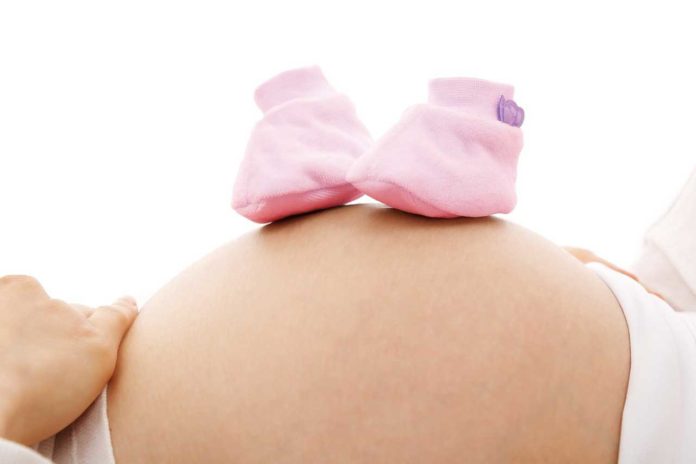A study- on 4004 pregnant women who had suspected or confirmed COVID-19- has shown that COVID-19 infection in pregnancy is not associated with stillbirth or early neonatal death. The study also found that the women who tested positive were more likely to have a premature birth.
Scientists from Imperial College London conducted the study, used data from the UK and the USA. All the women gave birth between January-August 2020.
Both data have no record of babies’ death due to COVID-19.
In the UK data, 12 percent of women with suspected or confirmed COVID-19 had a preterm delivery, whereas, in US data, 15.7 percent of women had a preterm delivery.
Scientists noted, “part of this association may be due to doctors deciding to deliver the baby early due to concerns about the effect of COVID-19 infection on mother and baby. The rate of spontaneous preterm birth was lower than expected.”
The proportion of babies born to mothers with confirmed COVID-19 and who subsequently tested positive for the SARS-CoV-2 virus (which causes COVID-19) was 2 percent in the UK study and 1.8 percent in the US study.
Professor Christoph Lees, a senior author of the study from Imperial’s Department of Metabolism, Digestion, and Reproduction, said: “The finding that COVID-19 infection does not increase the risk of stillbirth or baby death is reassuring. However, a suspected or confirmed COVID-19 diagnosis was linked to a higher risk of preterm birth, and it isn’t entirely clear why.”
Dr. Ed Mullins, a co-author from Imperial’s Department of Metabolism, Digestion, and Reproduction added: “This study supports the prioritization of vaccination for women who are pregnant or who plan to become pregnant, and existing measures that protect women in pregnancy from infection, to reduce preterm birth.”
In the UK study, eight of the women died, whereas four women died in the US study.
Scientists noted, “Although these death rates are higher than expected for women giving birth, they are similar to the expected death rates seen among adults with a confirmed COVID-19 infection. This suggests that women in pregnancy are not at a higher risk of death from COVID-19 than non-pregnant women.”
Professor Fiona Watt, Executive Chair of Medical Research Council, which helped fund the study, said: “It is critical to understand how COVID-19 affects different groups of people. We’re proud to have funded the present study in which, for the past year, researchers have monitored the health of a substantial number of pregnant women and their babies. The study’s findings that there is no increased risk of stillbirth and early neonatal death in women who contracted COVID-19 while pregnant are reassuring. However, the study highlights the need for more research to determine if, or how, COVID-19 affects maternal outcomes or premature birth.”
Julia Townson, Senior Research Fellow and co-author from Cardiff University, said: “I am delighted that the Centre for Trials Research at Cardiff University has been able to collaborate with Imperial College London on this important research. It has been a mammoth undertaking by the team, requiring a rapid build of the database and web page, as well as cleaning and analyzing the data.”
The study is published in the journal Ultrasound in Obstetrics and Gynecology.
